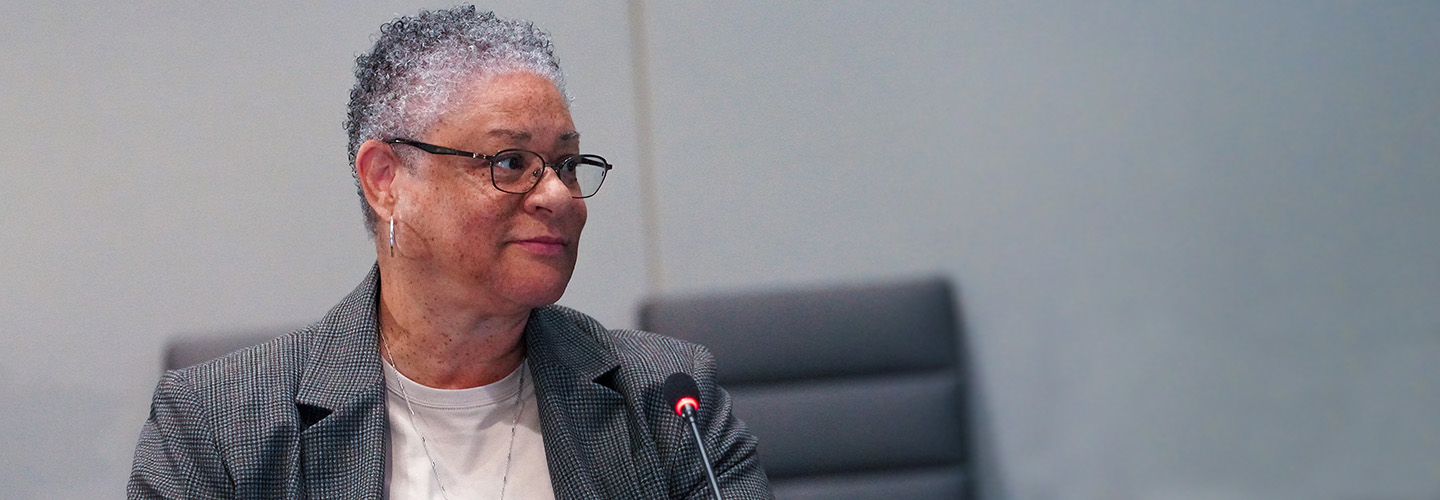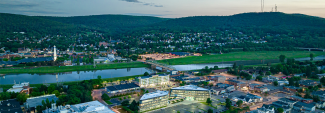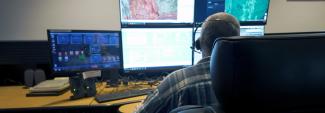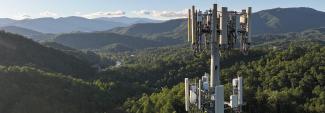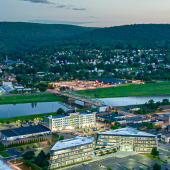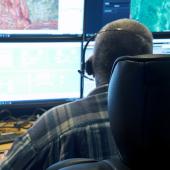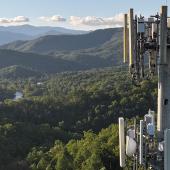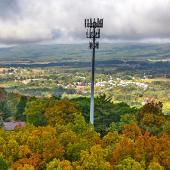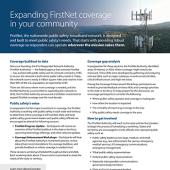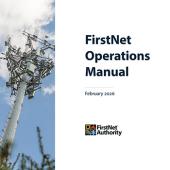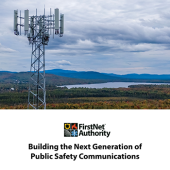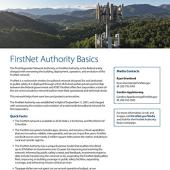9-1-1 serves at the nexus of public safety communications—which is why the 9-1-1 community has always been important to our work at the FirstNet Authority.
A prominent leader in the 9-1-1 community—Renee Gordon, Director of the Emergency Communications Center (ECC) in the City of Alexandria, Virginia—recently joined the FirstNet Authority Board. Renee has led some particularly innovative efforts in remote 9-1-1 operations and in regionalizing ECCs. We asked Renee about the current and future state of 9-1-1, the role of FirstNet in the ECC, and her priorities while serving on the FirstNet Authority Board.
Tell us about your current emergency communications role and your career.
My experience in emergency communications includes a large ECC, a medium ECC, and a secondary ECC—which is very unique.
Before coming to Alexandria, I served in the City of Baltimore and the Metropolitan Washington Airports Authority. The Airports Authority covers an international and national airport, has its own police and fire departments, and plays an important role in public safety.
However, my public safety career began long before my work in emergency communications. I used to be a police officer for Prince George’s County, Maryland, where I did community policing and hostage negotiation on the Narcotics Enforcement Team in the county’s busiest district.
Outside of the ECC, I serve as a commissioner for the Commission on Accreditation for Law Enforcement Agencies (CALEA), and—of course—I am now a member of the FirstNet Authority Board.
How did you decide to join the FirstNet Authority Board?
When I first heard about FirstNet, I said, “Wow, this is a brilliant idea. A network dedicated to public safety.”
I diligently researched the network, and soon we became the first department in the City of Alexandria to adopt FirstNet.
Fast forward to 2022 when I heard of a possible vacancy on the board. I eagerly applied. I thought long and hard about my decision because I wanted to ensure that I could give as much attention to the Board as its current members give.
Now that I’ve joined the Board, I have the privilege to work alongside a group of amazing, thought-provoking, dedicated, and passionate Board members. They do incredible work for public safety, and I am honored to have the opportunity to be a part of it.
You are representing the 9-1-1 community on the FirstNet Authority Board. What are some of your priorities for your tenure?
The Board has members from many sectors. As the only representative of emergency communications centers, I am representing the priorities of the entire 9-1-1 community. As part of my responsibilities on the Board, I will be meeting with people from 9-1-1 centers across the country to understand what is important to their operations and what they need from FirstNet.
My personal priorities are coverage and true 5G connectivity. We must have coverage and the ability to download information quickly—both in the ECC and in the field. As we move closer to Next Generation 9-1-1 capability, pictures and video won’t be as valuable if we don’t have the coverage and connectivity to transmit them.
Everyone knows my passion for remote call taking. When the pandemic hit in March 2020, Alexandria was one of the first 9-1-1 agencies in the nation to implement remote call-taking, and we used FirstNet to do it. Remote 9-1-1 operations can benefit agencies in many ways, so I’m committed to helping other ECCs understand how to set it up.
My other priority is to work on the ability to share information across state lines. We need to be more resilient and less compartmentalized and see public safety as one. For example, in Alexandria we are partnering with the neighboring Arlington County to regionalize our 9-1-1 operations.
What are some of the challenges and opportunities facing the 9-1-1 community?
Two challenges are staffing and the fast pace of technology. Even when we are able to secure staff, the fast pace and ever-changing technologies make it difficult to keep staff.
However, advancement in technologies also presents opportunities. The more we automate our operations, the less stress there is on staff. New technologies create the ability for advancements in 9-1-1.
And I’ll say it again—remote work, remote work, remote work. Remote work is a good recruiting tool during a time of staffing shortages. It also allows the ECC to rapidly staff up on short notice because no travel time is needed before a telecommunicator can take calls. And the reliability of FirstNet is phenomenal for remote work.
What are the benefits of FirstNet for the 9-1-1 community?
One of the biggest benefits of having a network dedicated to public safety is secure, uninterrupted communications. This is most important during major events such as terrorist attacks, natural disasters, and outages surrounding other networks. Another benefit is that FirstNet can serve as both primary and backup communications.
FirstNet originated the public safety network. It’s the front runner and years ahead of other carriers. Technology is fast moving, and I’m proud to say that FirstNet is at the forefront.
What do you wish the 9-1-1 community knew about FirstNet?
My hope is that more public safety entities will understand the importance and join the network. Other agencies should know what is offered by FirstNet and understand the FirstNet Authority’s vision for public safety communications.
We can all be part of this vision. As FirstNet grows, we have an opportunity to be part of what FirstNet is and can be for public safety. We all have ideas for the future of public safety. Let’s bring them together in one united vision.
What do you see for the future of 9-1-1?
I see a call taker with no jurisdictional boundaries who takes calls using universal call types with national mapping capabilities—this might sound far-fetched, but it is doable! Staffing shortages are hitting the ECC like a tsunami. If not at a national level, we definitely need to start thinking about this change at a regional level.
Every community in the country deserves the same level of service—whether it's a tribal, rural, or urban community. And we can only get that by advancing technology and sharing ideas.


